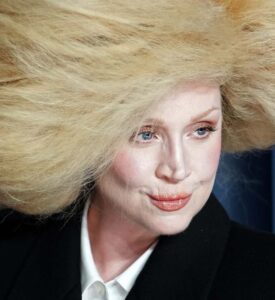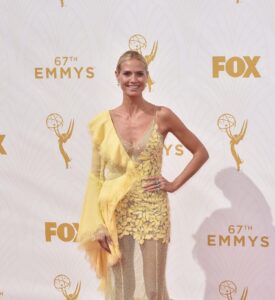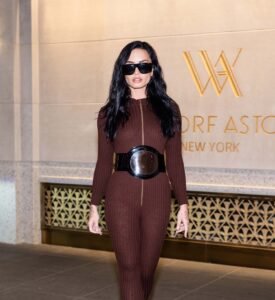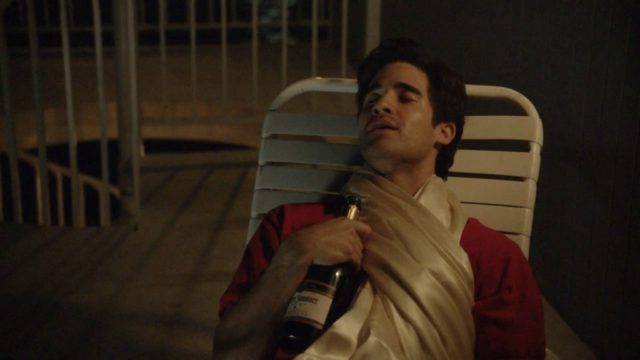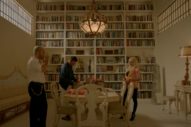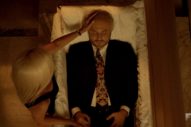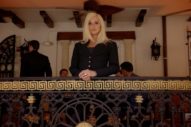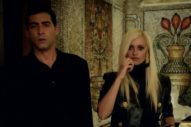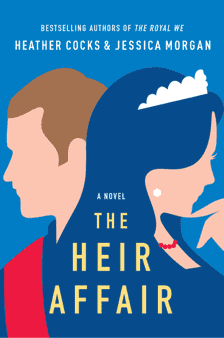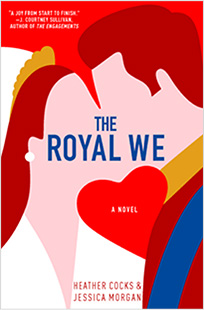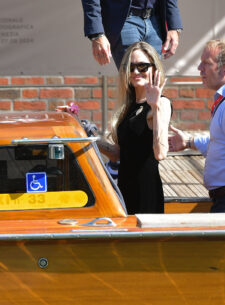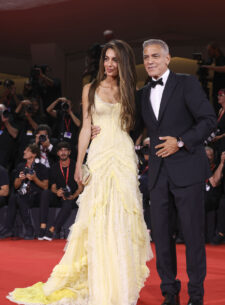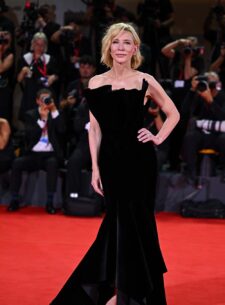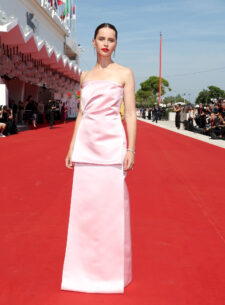The last four episodes of American Crime Story: The Assassination of Gianni Versace continued telling in reverse the story of Andrew Cunanan’s rampage, weaving it with occasional tidbits about Versace himself. And as such, it wrestled with the same problem: Cunanan’s story is rich, fascinating, compelling, and creepy, hard to look away from but also hard to watch. The Versace stuff feels perfunctory, like the show is trying not to bounce the checks that its title and premiere already cashed.
But, now that the season is over, I have to say I think laying out the story this way was smart for a couple reasons. One, it maintains tension in a situation where we already know the outcome. A lot of people might not be aware of exactly who Andrew Cunanan killed before he shot Versace, and once you see him so casually bludgeon and shoot those people, everyone the younger Cunanan comes across feels like someone whose life might be in imminent danger. But two, and this one is the most important: It prevents the viewer from feeling any sympathy for a serial killer. If we’d started this show with Young Andrew, the sweet, innocent kid whose family life may have kick-started his mental undoing, we might have felt pity. And as we watched him lose his grip, we might have carried that pity into his downward spiral, into his murders, and past his victims. Which isn’t fair to them; Cunanan is not the hero of the piece. He is its horror. Telling it backward, then, means we saw the stark brutality of his crimes — of what he was capable of doing, and how glibly he could move on from it — before we saw the buildup to them, and while we could see the pieces the show was trying to put together about the hows and whys of his sins, we had those images in the forefront of our minds. So I felt sadness, but no sympathy.
It was supremely well-acted. All the Cunanan pieces were layered and interesting; the Versace stuff, less so. And in the end I think it achieved what it should: It painted a picture of a twisted, broken individual who went on a killing spree we’ll never truly understand, without in any way making us like him, or feel for him in place of his victims.
Here’s how they laid it out:
Ep. 6, “Descent”: Right after the hour devoted to poor Jeff Trail, and how achingly wonderful and tragic Finn Wittrock made his struggle — to me, that episode was a prime example of why backward storytelling worked; it was so much more affecting, knowing that Jeff was doomed, knowing this friendship that he thought was bringing him into the light was actually going to be his demise — we are introduced to Andrew’s past in San Diego. He’s living with a rich older man named Norman Blatchford in his sprawling oceanside manse; while he pretends to the world that he’s just Norman’s decorator, and they have separate mattresses, it’s implied he’s on Norman’s payroll as a companion, and Norman’s friends all sassily side-eye him — or in one friend’s case, actively call him out on his bogus airs and graces. For Andrew is throwing himself a lavish birthday party at Norman’s pad, inviting Lizzie, Jeff Trail, and his new crush David Madson, whom he has decided is his One and Only. Cunanan — per the show — asks Jeff Trail to give him expensive shoes and tell some white lies that will make Madson jealous. What ensues is Andrew seeing Jeff and David smiling and making small talk as Andrew gadflies about the party, which we’re meant to think informed some of the darkness that descended — and some of his cruel decisions with Jeff, like “accidentally” outing him via postcard. (This means the Trail episode is a SLIGHT timeline blip because we see Andrew and Jeff meeting in that hour, but here they’re already friends. Finn Wittrock is a Ryan Murphy guy, and I’m thinking they gave Trail his own episode as Emmy bait for Wittrock.) It ends with Norman (Michael Nouri from Flashdance, hotter as a silver fox) kicking out Andrew, and Andrew pulling a mini-STELLAAAAAAA by sneaking back to the house and contemplating breaking back into it.
We also see Andrew convince David to come to L.A. with him and spend time in a lavish hotel penthouse, echoing a lost weekend we’ll later see from when they met in San Francisco. It’s here that Andrew lays out his feelings for David and his belief that they should get married, and David spurns him, gently suggesting that perhaps Andrew thinks that David is The One because there haven’t been enough special someones in Andrew’s life. It’s also implied that David is starting to see through some of Andrew’s elaborate stories about his work, his life, his family, because he then kindly suggests they sit down and really get to know each other. With truths. So they start going back and forth, and David’s expression is so hopeful when he asks about Andrew’s family. Andrew opens his mouth… and starts talking about his stockbrocker father, and literary publisher mother, and how they adored him and gave him the master bedroom and she’d bring him lobster lunches at his fancy prep school. The air goes out of David — it’s like he sees in that moment that Andrew simply can’t be himself — and he visibly retreats. It’s the moment Andrew really loses him, the show implies, which is ironic because parts of that turn out to be truer than anything he’s ever told anyone else.
Ep. 7, “Ascent”: Here, we jump back to Andrew’s rise in San Diego’s social scene. He begins as a humble pharmacy employee with aspirations, living with a scattered, dreamy mother who seems only vaguely connected with reality. To make ends meet after he’s fired, Andrew tries to sign up with an escort agency that cruelly rejects him for being too smart, too square, too hard to sell. Almost out of spite, he goes out and attacks the job on his own, eventually turning up at the opera as polished as a gem and targeting Norman’s group with his charms. At a dinner party later, he’s almost tussled over by Norman, David — the snide, skeptical friend from Episode 6 — and a rich older man named Lincoln, who ultimately wins. Andrew asks for an expense account and cash and promises to turn their home into the heart of gay San Diego society, and Lincoln hungrily agrees. But then, high on his cash flow, Andrew — and some other suits his own age that he’s befriended — sees David Madson alone in a bar, and buys him a drink. A tryst in a hotel penthouse ensues, and Lincoln finds out and cuts off Andrew. Then he goes out and picks up a ragamuffin at the local gay hangout and brings him home; Lincoln reads him as a haunted loner, but instead, the man jumps at Lincoln’s touch and then bludgeons him to death with an obelisk. Andrew has returned home by now and is watching from the shadows, first in horror and then in fascination, as his benefactor is murdered and then he urges the killer to run. Supposedly, the murder is true, but no one knows whether Andrew witnessed it; the show uses it to imply that it awakens Andrew’s latent dark side. And intriguingly, it’s very similar to the way he later murders Jeff Trail, and partly evocative of Lee Miglin’s death.
Meanwhile, the show has paid Penelope Cruz a lot of money, presumably, so there’s a light storyline about Gianni grooming Donatella to come into her own. They do this by designing a dress together that she wears to the 1992 Met Gala, one they famously replicated later, and which has a bodice of belts. It was polarizing in the press but caused a stir in fashion circles; this happens in the show concurrently with Versace’s diagnosis with ear cancer and Donatella needing to step into a more commanding role at the company while he recovers. The parallels here are, I think, that tragedy brought both these people into who they became: Gianni’s illness gave Donatella the exprience she would later draw on to run the company, and Lincoln’s murder may have flipped a switch within Andrew that turned him from a pathological liar into a psychopathic serial killer. But as usual, the connections are loosely drawn, and the show slows down to a halt when the Versaces appear. Edgar Ramirez is good, and an uncanny likeness, and Penelope is… fine. It just feels so much like she’s acting around a mouthpiece.
Ep. 8, “Creator/Destroyer”: Here, we have a story of parents. Gianni’s mother, a dressmaker, encouraged her son’s latent artistry. When he was bullied at school for sketching dresses in class, his mother’s response is to piece together the ripped-up sketch and make it with him for real. She, the show suggests, built her son up; Cunanan’s father put Andrew on a pedestal and then may ultimately have helped destroy him.
We meet Modesto “Pete” Cunanan when he is moving his family from a small house to a two-story palace. Andrew’s other three (I think) siblings look on sullenly as they load and unload the U-Haul, and ride in the back with their mother, while Andrew rides shotgun and is led upstairs by his father to a master suite all his own. So that detail he told David was true. Andrew is very quiet, and sweet; clearly bright, but timid. No one quite knows why Modesto favored Andrew so heavily, but he did make everyone else sleep in cramped quarters, and he would serve himself and Andrew at dinner and leave the rest to fend for themselves. Even Andrew seems aware of the power imbalance and that Modesto is making something of a false god out of him, but is too cowed to complain. It’s telling when the ladies interviewing him for his fancy school ask him what his one wish would be, and when his scripted answer falls apart somewhat, Andrew offers up instead, “To be special.” This drives him straight to his doom, but in the near term, it turns him into the kind of attention-grabbing student at school who wears an unbuttoned shirt and necktie in his senior photo, or a red leather jumpsuit to a nearby party (in real life, he apparently donned it for Prom). He also trades sex with older men for money and convinces himself these are special relationships, which his clients quickly reject. It’s as if he spends his life trying to earn the platform and the adulation his father randomly gave him because he knows that was founded on dark things. Here he does become friends with Lizzie, who is awesome, and sees only Andrew’s buoyant side. Poor Lizzie. And poor Mrs. Cunanan, who becomes a shell of herself as events unfold.
Indeed, there is also a scene in which the show posits that Modesto sexually abused his young son, coming to his bed and telling him to tap into the side of himself that made no sound when he burned his foot as a baby. “Not a sound,” he repeats, switching off the light. No one seems to know if that’s true, although the favoritism absolutely was. Interestingly, Andrew’s siblings disappear entirely from the episode after the beginning, and are never mentioned again. The show almost throws it in there as if to be like, “Maaaaybe this is why Modesto favored him so much?” but then never has a take on the effect this had on Andrew. It might’ve colored his reliance on older men, specifically older providers who could give him the comfort his father later would not.
Modesto was also a gross shyster. He wields his wife’s post-partum depression as a threat. He turns on a dime when he decides people don’t have faith in him. He ignores his other children. He talks his way into a job with Merrill Lynch, but his gift of the gab is no match for his inability to play the markets. He quickly realizes he’s in over his head, and out of desperation, he starts swindling clients and tumbling to less and less prestigious firms until he’s busted by the FBI and flees to the Philippines. The family is left with nothing, and worse, he knew it was coming and did nothing to protect them. Andrew flies to Manila, convinced his father has money socked away and a plan for the family, and is galled to learn that Modesto does not and doesn’t care and never would have reached out to them. Andrew shatters. It could be because he coped with his father’s abuse by putting faith in him — like, needing desperately to believe that his person who has always told you that you’re amazing really is right, and really is good, and really is a straight-shooter. And that the self-worth he inflated you with is genuine and not based on lies. Whatever it was, Andrew finally sees his father for the hollow man he is, and starts to cry as Modesto taunts him. Andrew pulls a knife on him, but Modesto sneers that he doesn’t have it in him to kill. (This feels on-the-nose.) Andrew doesn’t, instead returning to San Diego to apply for a job at the drugstore. When the friendly Filipino clerk presses him on his ancestry, a bitter Andrew unspools his first lie about his background and the one he would tell the most: that Modesto owns countless successful pineapple plantations.
Ep. 9, “Alone”: We now pick up the manhunt after Versace’s death. Andrew originally reacts as nonchalantly as he did after Lee Miglin’s death, breaking into a nearby houseboat — more house than boat, but bobbing on the water — and celebrating with Champagne and snacks as he watches the coverage. But then he can’t get out of town, because checkpoints have been set up everywhere. He becomes increasingly dirty, desperate, and hungry, holed up in the houseboat with nowhere to go. A weepy call to Modesto extracts promises that Modesto will come get him, which I thought were going to lead to Modesto turning him in for the reward — but in the end he just goes on TV and gives a smug interview about how he and Andrew are working together to sell his life rights to Hollywood. Aghast, Andrew watches this and realizes that his father will never, ever be there for him, not ever, and that he is well and truly stuck. So he fires a gun at the TV in anger. I think this is pitched as his undoing, although apparently he didn’t actually do that. The caretaker or landlord, or whatever, comes into the place and sees it’s in disarray and Andrew shoots a gun at the ceiling to make him flee. So the cops come, and as they slowly climb up the stairs, Andrew sits on the bed and puts a gun in his mouth and pulls the trigger.
Word of his death is the only thing that makes Marilyn Miglin feel like the nightmare is over. For David Madson’s parents, it meant not being able to prove that David had nothing to do with Jeff Trail’s murder, and getting no answers about why he went on the lam with Andrew. What for her was closure was, for them, a door left ajar forever. The show takes liberties with Versace’s lover Ricky Martin, claiming he tried to kill himself after Donatella coldly told him that the house he was promised is controlled by the company now. In reality, he did live in Lake Como for a while and credits Elton John and their pals with helping him get over it. And Donatella, obviously, rises to the occasion, takes control of the company, and turns it into an empire, although all we see is her lighting a bunch of candles in the mausoleum.
